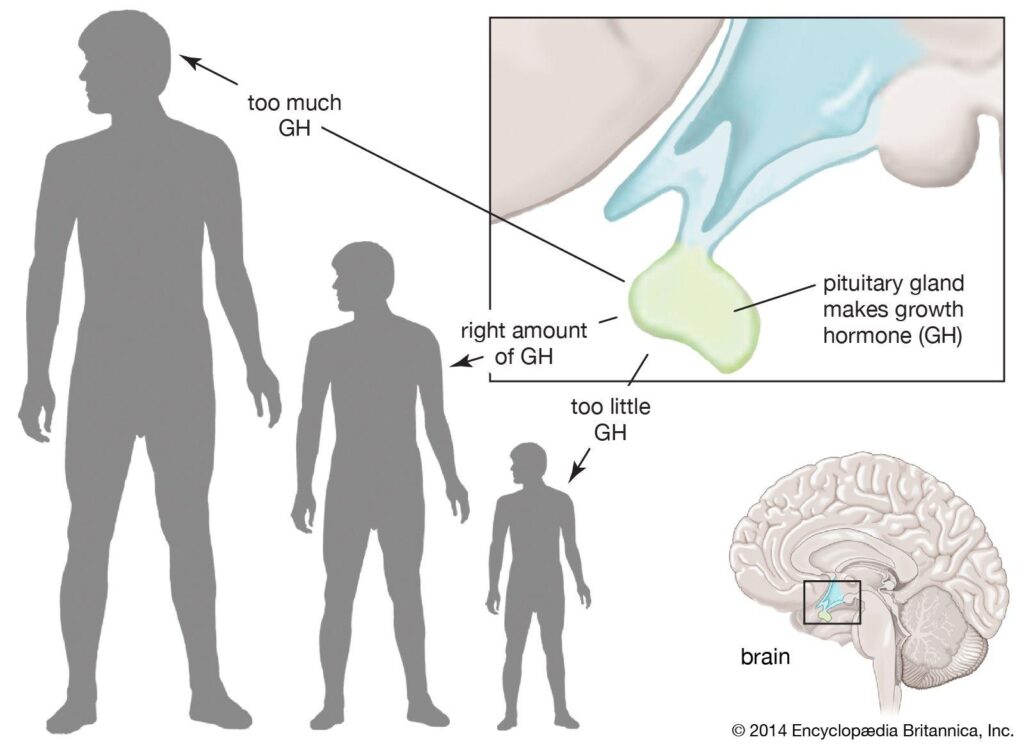A growing number of athletes and aging individuals are turning to growth hormone (GH) in hopes of boosting performance and vitality. Promoted for its potential to build muscle, speed recovery, and slow the effects of aging, growth hormone has captured widespread attention – but what does the science actually say? Harvard Health experts weigh in on the complex role of growth hormone in athletic performance and the aging process, separating fact from fiction in this emerging health trend.
Understanding Growth Hormone and Its Role in Athletic Performance
Growth hormone (GH) plays a pivotal role in regulating various physiological processes crucial to athletic performance. Naturally produced by the pituitary gland, GH stimulates muscle growth, enhances fat metabolism, and aids in tissue repair. Athletes often seek to optimize GH levels to improve strength, endurance, and recovery times. However, its effects are nuanced and influenced by age, training intensity, and overall health. While GH can promote increased muscle mass and reduce body fat, indiscriminate use or supplementation without medical supervision can lead to adverse effects, such as joint pain and insulin resistance.
Understanding how GH interacts with the body is essential for maximizing performance benefits safely. Key functions of GH include:
- Stimulating protein synthesis: critical for muscle repair and growth.
- Enhancing fat breakdown: providing energy during prolonged exercise.
- Supporting bone density: important for injury prevention.
- Regulating glucose metabolism: balancing energy availability.
| GH Effect | Impact on Athletes |
|---|---|
| Muscle Growth | Increases strength and power output |
| Fat Metabolism | Improves energy efficiency |
| Recovery | Faster tissue repair post-exercise |
| Bone Health | Reduces risk of fractures |
The Impact of Aging on Growth Hormone Levels and Physical Fitness
As we age, the body’s production of growth hormone (GH) naturally declines, impacting muscle mass, bone density, and overall physical fitness. This reduction contributes to the gradual loss of strength and endurance commonly observed in older adults. Scientists have identified that lower GH levels are associated with decreased ability to recover from exercise, slower metabolism, and increased fat accumulation. While GH therapy is sometimes discussed as a potential anti-aging intervention, experts warn that its benefits and risks vary, and lifestyle factors such as diet and regular physical activity remain crucial for maintaining vitality.
Key effects of declining growth hormone levels include:
- Reduced muscle regeneration and repair
- Lower bone mineral density, increasing fracture risk
- Decreased cardiovascular efficiency
- Impaired exercise tolerance and recovery times
| Age Group | Average GH Level (ng/ml) | Physical Fitness Impact |
|---|---|---|
| 20-30 years | 1.0 – 5.0 | Peak muscle mass & endurance |
| 40-50 years | 0.5 – 2.5 | Moderate muscle decline, slower recovery |
| 60+ years | 0.1 – 1.0 | Significant strength loss, increased fatigue |
Evaluating the Benefits and Risks of Growth Hormone Therapy for Athletes
Growth hormone therapy has gained attention among athletes seeking enhanced performance and accelerated recovery. Proponents argue that its potential to increase muscle mass, reduce fat, and improve energy levels could offer a competitive edge. However, scientific evidence supporting these claims remains inconclusive, with many studies showing only modest or no significant improvements in strength or endurance. Moreover, the complex physiological role of growth hormone means that benefits may vary widely depending on individual factors such as age, baseline hormone levels, and training regimen.
Potential risks accompany these unproven benefits, including:
- Joint pain and swelling
- Increased insulin resistance, raising diabetes risk
- Cardiovascular complications such as hypertension
- Abnormal growth of bones and organs
- Legal and ethical concerns surrounding doping regulations
| Aspect | Potential Benefit | Associated Risk |
|---|---|---|
| Muscle Mass | Increased growth and repair | Muscle cramps, imbalance |
| Recovery Time | Faster healing from injuries | Overuse, masking injuries |
| Fat Reduction | Improved body composition | Metabolic disruption |
Expert Recommendations for Safe and Effective Use of Growth Hormone in Aging Adults
Medical supervision: Growth hormone therapy demands rigorous medical oversight to ensure safety and efficacy. Experts stress the importance of individualized dosing tailored to each patient’s health status, age, and goals. Regular blood work and physical assessments are essential to monitor hormone levels, detect side effects early, and adjust treatment accordingly.
Balanced lifestyle integration: Relying solely on growth hormone without addressing lifestyle factors can undermine results and pose health risks. Specialists advise combining therapy with nutrient-rich diets, consistent exercise regimens, and adequate sleep. This holistic approach maximizes benefits such as improved muscle mass, bone density, and cognitive function, while minimizing complications.
- Avoid self-medication: Unsupervised use may lead to serious adverse effects, including insulin resistance and joint pain.
- Regular cardiovascular screenings: Aging adults should be closely monitored for heart-related changes during therapy.
- Set realistic expectations: Benefits are gradual; GH is not a shortcut to athletic excellence but a supportive aid in healthy aging.
| Factor | Recommended Action |
|---|---|
| Hormone Levels | Quarterly blood tests |
| Physical Activity | Regular strength & cardio workouts |
| Diet | High-protein, balanced meals |
| Side Effect Monitoring | Frequent physician check-ins |
The Conclusion
In summary, while growth hormone continues to attract attention for its potential to enhance athletic performance and counteract aging, experts urge caution. Current research from Harvard Health underscores that the benefits remain inconclusive and the risks-ranging from joint pain to more serious health complications-are significant. As the scientific community calls for more rigorous studies, athletes and older adults alike are advised to approach growth hormone therapies with informed skepticism. Ultimately, achieving optimal health and performance may rely more on time-tested approaches such as balanced nutrition, regular exercise, and adequate rest than on hormonal shortcuts.





